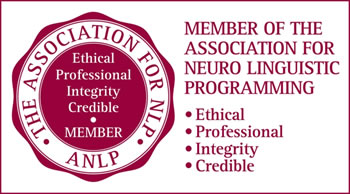 https://florencemadden.co.uk/wp-content/uploads/2017/04/training-o.jpg
409
948
flomaddenco
https://florencemadden.co.uk/wp-content/uploads/2018/06/florence-madden-logo.jpg
flomaddenco2018-08-16 16:01:042018-08-16 16:01:04Managing Meetings
https://florencemadden.co.uk/wp-content/uploads/2017/04/training-o.jpg
409
948
flomaddenco
https://florencemadden.co.uk/wp-content/uploads/2018/06/florence-madden-logo.jpg
flomaddenco2018-08-16 16:01:042018-08-16 16:01:04Managing Meetings(1 or 2 day options)
Up to 8 delegates
Aimed at those who want to understand what stress is and what it means for them and their people in the workplace. It aims to help delegates identify stress in themselves and other people and to look at strategies for managing their own state or other people to do so (as appropriate).
*The course is frequently run under this more pro-active title – drawing delegates attention towards what they want to achieve rather than focussing on the problem.
There is also some pre-course work and practical exercises throughout.
Course Option A: 1 day Stress/State Management Course
The content is as follows:
This is a highly interactive session with the emphasis on practical exercises to help us control our ‘state’:
- What is ‘stress’, what causes it, the effects and what we can do about it ?
- Stress in the workplace – the legal context
- Recognising your stressors – habits, beliefs, attitudes
- How individual’s experience situations differently and therefore the different ‘states’ that are induced
- Becoming aware of our ‘state’ – noticing how we can shift it
- Exercises to practice and ‘take away’
- Dealing with stress in other individuals and stressful situations at work through understanding human interaction
- Being more resourceful – using ‘Timeline’ and ‘Future Pacing’ techniques
- Review of learning points/Action Plan
Course Option B: 2 day Stress/State Management Course
This option broadly follows the same subject matter, but giving delegates a deeper understanding of human interaction through Transactional Analysis and more extensive use of NLP techniques to encourage ‘belief shifts’ and hence real behaviour change.
Day One
- Welcome/objectives/personal experience
- Setting ‘Ground Rules’ to maximise benefit from the course
- Defining what stress is, the causes and the effects
- Stress in the workplace – the legal context
- Recognising your stressors – habits, beliefs, attitudes
- Becoming aware of our ‘state’ – noticing how we can shift it
- Understanding the power of personal attitude belief through Logical Levels model
- Exercise – taking on more helpful/resourceful beliefs about self/others
- Other strategies for managing our state – exercise, relaxation techniques, time management, assertion
Day Two
- Review learning/change from day one
- Helping others manage their state in potentially stressful situations at work through understanding human interaction
- Transactional Analysis – understanding how behaviour is triggered in ourselves and others
- Focussing on staying in the ‘Adult’ in stressful situations
- Exercise – handling situations better using ‘Perceptual Positions’
- Being more resourceful – using ‘Timeline’ and ‘Future Pacing’ techniques
- Review of learning points/Action Plan





